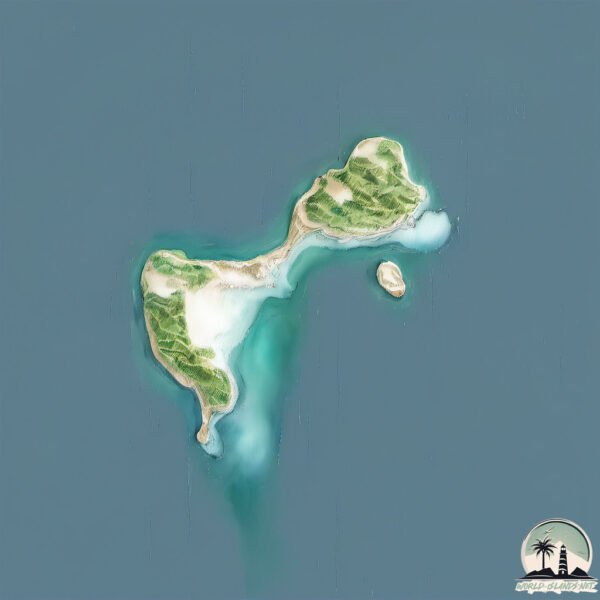Nisída Gyalí

Welcome to Nisída Gyalí, a Temperate island in the Aegean Sea, part of the majestic Atlantic Ocean. This guide offers a comprehensive overview of what makes Nisída Gyalí unique – from its geography and climate to its population, infrastructure, and beyond. Dive into the details:
- Geography and Size: Explore the island’s size and location.
- Climate and Weather: Weather patterns and temperature.
- Topography and Nature: Uncover the natural wonders of the island.
- Infrastructure and Travelling: Insights on reaching, staying, and making the most of your visit.
- News and Headlines: Latest News.
Geography and size of Nisída Gyalí
Size: 4.73 km²
Coastline: 15.5 km
Ocean: Atlantic Ocean
Sea: Aegean Sea
Continent: Europe
Nisída Gyalí is a Small Island spanning 4.7 km² with a coastline of 15.5 km.
Archipel: –
Tectonic Plate: Aegean Sea – Located in the eastern Mediterranean, this microplate is characterized by seismic and volcanic activity due to its interaction with the Eurasian and African Plates.
The geographic heart of the island is pinpointed at these coordinates:
Latitude: 36.66417278 / Longitude: 27.12131153
Climate and weather of Nisída Gyalí
Climate Zone: Temperate
Climate Details: Hot-Summer Mediterranean Climate
Temperature: Hot Summer
Climate Characteristics: Characterized by hot, dry summers and mild, wet winters, typical of coastal areas with abundant sunshine.
Topography and nature of Nisída Gyalí
Timezone: UTC+02:00
Timezone places: Europe/Mariehamn
Max. Elevation: 87 m
Mean Elevation: 41 m
Vegetation: Sparse Vegetation with Trees/Shrubs
Tree Coverage: 67%
The mean elevation is 41 m. The highest elevation on the island reaches approximately 87 meters above sea level. The island is characterized by Plains: Flat, low-lying lands characterized by a maximum elevation of up to 200 meters. On islands, plains are typically coastal lowlands or central flat areas.
Dominating Vegetation: Sparse Vegetation with Trees/Shrubs
Areas where grasses and other herbaceous plants are prevalent, but with occasional presence of trees and shrubs. Often found in semi-arid regions or grasslands. Nisída Gyalí has a tree cover of 67 %.
Vegetation: 8 vegetation zones – Very Highly Diverse Island
Islands in this range are ecological powerhouses, showcasing a wide array of vegetation zones. Each zone, from lush rainforests to arid scrublands, coastal mangroves to mountainous regions, contributes to a complex and interdependent ecosystem. These islands are often hotspots of biodiversity, supporting numerous species and intricate ecological processes.
Infrastructure and Travelling to Nisída Gyalí
Does the island have a public airport? no.
There is no public and scheduled airport on Nisída Gyalí. The nearest airport is Kos Airport, located 13 km away.
Does the island have a major port? no.
There are no major ports on Nisída Gyalí. The closest major port is LIMIN KOS, approximately 29 km away.
The mean population of Nisída Gyalí is 24 per km². Nisída Gyalí is Gently Populated. The island belongs to Greece.
Continuing your journey, Nisí Nísyros is the next notable island, situated merely km away.
Greece is classified as Developed region: nonG7: Developed economies outside of the Group of Seven, characterized by high income and advanced economic structures. The level of income is High income: OECD.
News – Latest Updates and Headlines from Nisída Gyalí
Stay informed with the most recent news and important headlines from Nisída Gyalí. Here’s a roundup of the latest developments.
Please note: The data used here has been primarily extracted from satellite readings. Deviations from exact values may occur, particularly regarding the height of elevations and population density. Land area and coastline measurements refer to average values at mean high tide.
